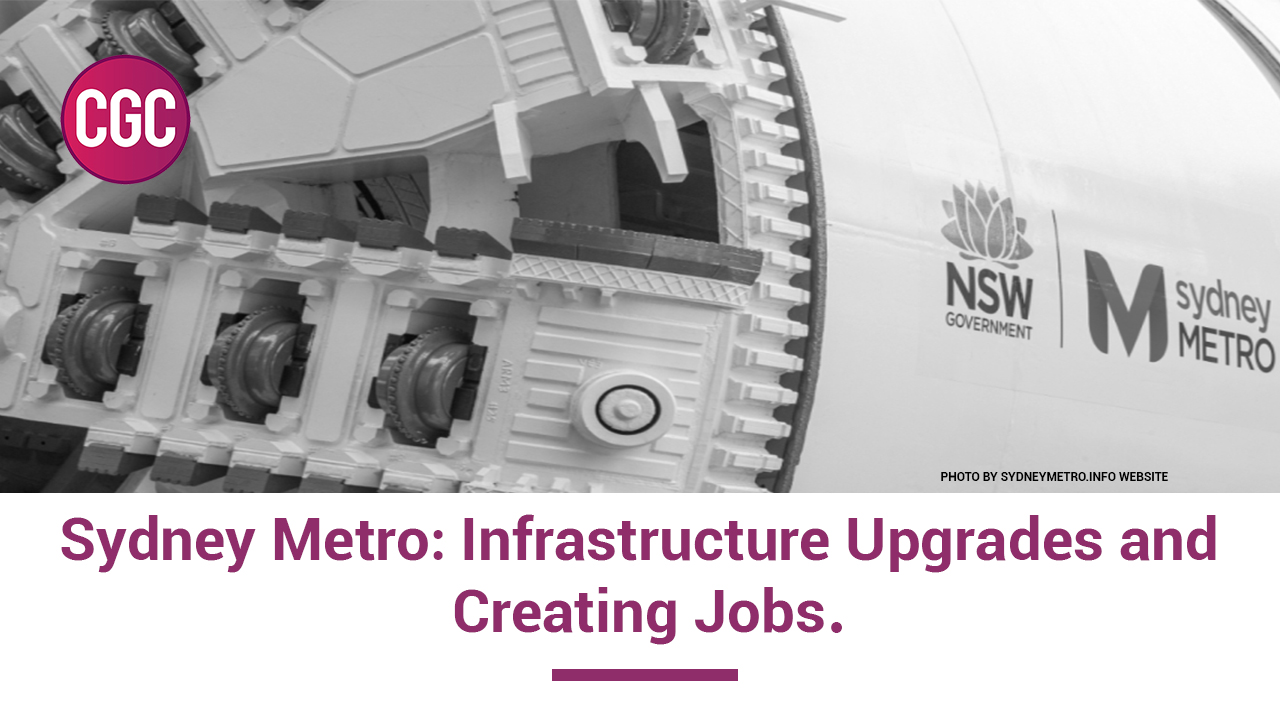May 2016 Newsletter
As things stand, the Australian building and engineering market is generally very busy. There are several significant civil and structural projects underway, as well as plenty at design stage. Sydney...
Read moreAs all good managers know, performance reviews are essential in the modern workplace. They help both managers and employees to demonstrate their targets and key performance indicators (KPIs), discuss career progression, share their thoughts and identify areas that need improvement.
This recurring process is an effective management process and helps businesses to promote and develop the values, principles, and competencies that are required to ensure the best team outcomes. When done poorly, it’s little more than a box-ticking exercise that seems to suck both time and resources. However, when done right, they are one of the best tools for developing an employee's career, as-well-as maintaining high-performing and successful teams.

Here are three major reasons why every organisation, irrespective of its size or industry, needs to have a robust performance review process in place.
With the pandemic we’re in unprecedented times, so it’s never been more important to check in with your employees regularly. Working from home or other locations presents even more communications challenges than normal.
As a rule of thumb, there really shouldn’t be any surprises during a performance review. Both parties should know the rating they’re on target for, salary increases, promotions, any gaps, if targets have been met, etc. This means there needs to be ongoing performance management discussions throughout the year with clear and concise feedback provided. This keeps everyone communicating and on the same page.
Managers will often come at reviews from the business’s perspective, whereas employees will have their own singular personal perspective. For example, an employee may not have hit their KPIs due to market factors, they have done everything right but the results just aren’t there for them, and possibly others, which will impact their rating. From the business’s perspective they haven’t met their agreed responsibility, but from the employee’s perspective the market changed.
Throughout the year, consistent performance management (both down and up) will help businesses understand what happening with clients and markets, so they can manage the business and their personnel more effectively and fairly, helping to retain and motivate staff.
Rating systems, like the bell curve, help to give the business, HR teams, and delivery teams a shared vernacular around performance. Does someone met, exceed, or extensively exceed expectations, based on their level, and benchmarked against peers? And how does this relate to remuneration, promotions, assignments, etc?
Whilst there are some problems with this type of approach, it does provide a demonstrable rigour for all involved.
Need more… here are five ways to measure performance:
Helping your employees build successful careers is as important as hiring quality employees in the first place. Invest in your employees, and the whole team will reap the benefits. At CGC, we genuinely want to help our audiences recruit and retain the best staff. So, if you don’t have a planning template, we have you covered.
We’ve developed a free career planning template that you can download. It will specifically help you to easily summarise your staff’s career goals.
At CGC Recruitment, our specialist team of experienced consultants specialise in all major infrastructure, engineering, and construction sectors. We help clients throughout Australia deliver their projects by attracting the best candidates and talent.
To discuss a recruitment matter, connect with CGC today and one of our experienced consultants will be happy to help.
As things stand, the Australian building and engineering market is generally very busy. There are several significant civil and structural projects underway, as well as plenty at design stage. Sydney...
Read more

Finding and retaining the right Mechanical, Electrical, and Plumbing (MEP) project manager can be difficult. However, in industries where precision, safety, and skill are of the utmost importance,...
Read more
The construction, infrastructure and engineering sectors will continue playing a key role in the Australian economy as a job creator. The Federal Government is committed to stimulating the economy...
Read more
So, you’ve landed a job interview for your dream job, now comes the hard part. How do you create a great and lasting first impression with your interviewer?
Read more
CGC Projects in Focus - Building connections with Sydney Metro West
Read more
CGC Projects in Focus - Challenges for Architects at One Sydney Harbour
Read more


The architecture, interior design, landscape design, and urban design sector remains buoyant across Australia - despite disruptions and a constantly changing world.
Read more© 2022 CGC Recruitment. All rights reserved.
Terms & Conditions Privacy Policy Contact